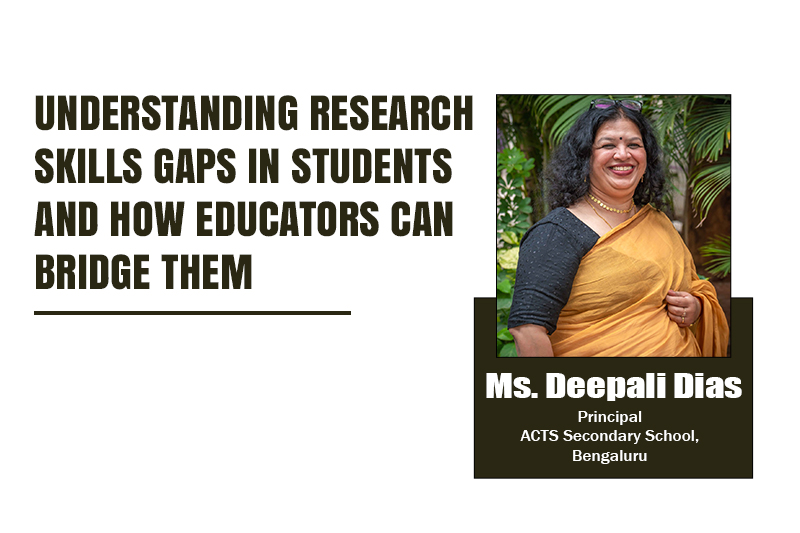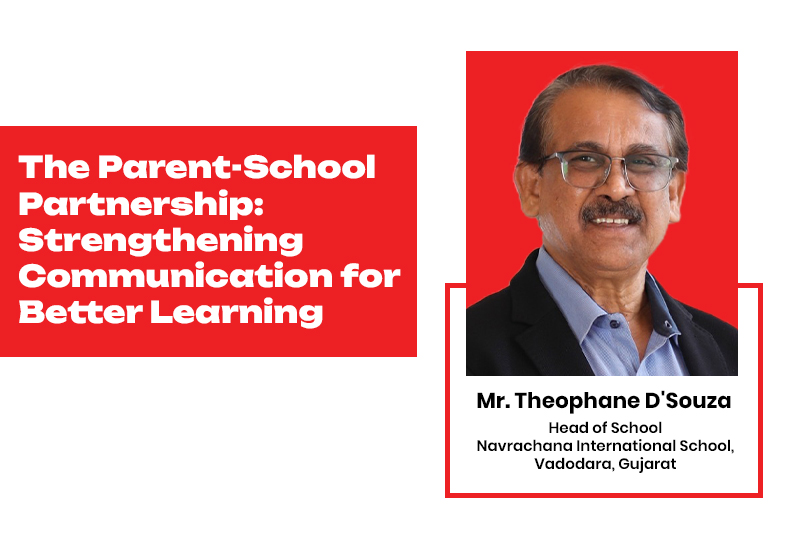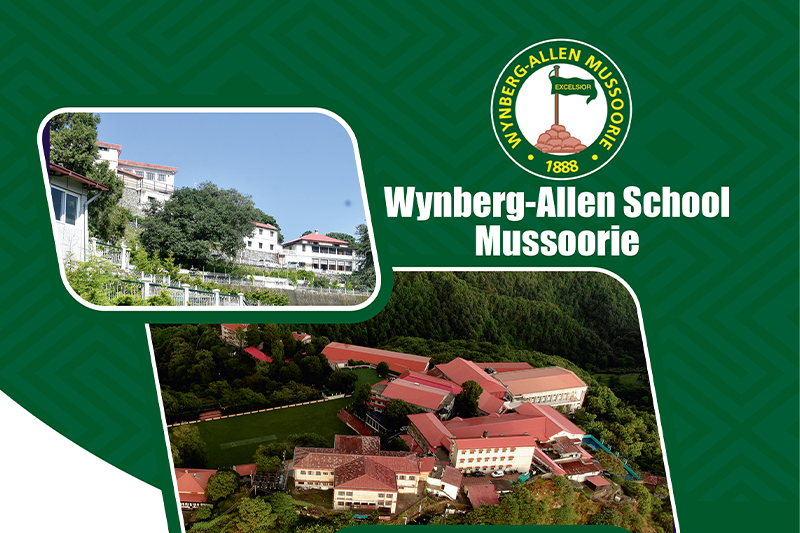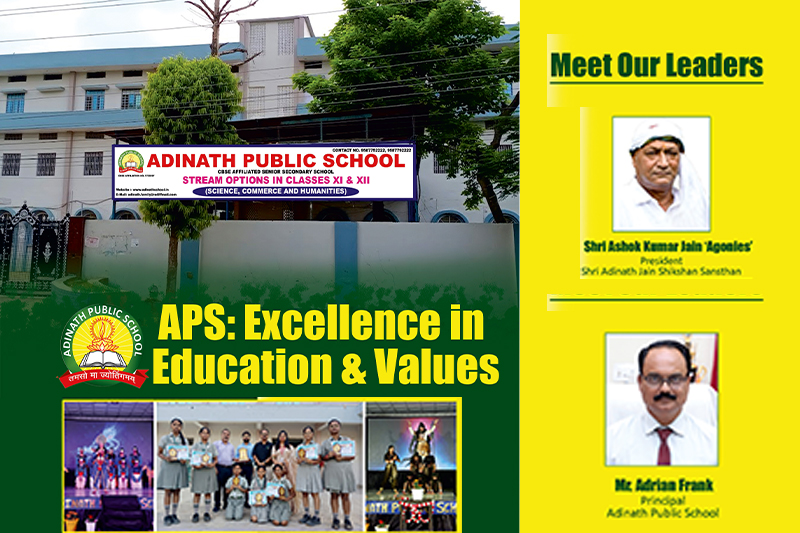Ms. Jayashree, London Montessori: Leading Sustainability & Global Citizenship in School Curriculum
“Education that embraces sustainability and global citizenship plants the seeds for a just and thriving future—where learning connects hearts, minds, and the world.”
Education has a renewed responsibility in a world increasingly shaped by global interdependence, environmental challenges, and socio-economic inequalities. It must move beyond textbooks and examinations to shape young minds into compassionate, responsible, and proactive global citizens. This conviction is firmly held by Ms. Jayashree, Principal of London Montessori, who has spent years observing and guiding the evolving purpose of education.
According to her, the twin pillars of sustainability and global citizenship must form the foundation of any forward-thinking curriculum. These are not peripheral themes to be mentioned occasionally; instead, they should permeate every aspect of school life—from classroom instruction to extracurricular projects, school governance, and community engagement.
A New Mandate for Education
In Ms. Jayashree’s view, the traditional goals of education—literacy, numeracy, and subject expertise—while still important, are no longer sufficient on their own. As the challenges facing our world become increasingly complex—encompassing climate change, resource scarcity, displacement, and social injustice—the need to educate students with a broader, more ethical perspective becomes pressing.
“Sustainability and global citizenship are not abstract ideals,” she emphasizes. “They are practical, urgent, and deeply human priorities that must be woven into how we teach, learn, and live.”
As she explains, sustainability involves making responsible choices today that safeguard the environment, economy, and equity for future generations. It is about learning to live within planetary boundaries while fostering inclusive social development. Global citizenship, on the other hand, nurtures an understanding of our shared humanity. It encourages awareness of global interconnections, promotes respect for diversity, and inspires a commitment to justice, peace, and cooperation.
Curriculum as a Catalyst
Integrating these themes into the curriculum is a moral imperative and a pragmatic need. Ms. Jayashree argues that doing so transforms education into an agent of positive change, empowering students to comprehend the world and contribute meaningfully to its betterment.
The integration process should not be superficial. It must move beyond adding topics to a deeper interdisciplinary approach. In science classes, students can examine the science behind renewable energy, carbon footprints, and biodiversity conservation. Geography lessons can explore sustainable urban planning, the impact of global trade, or the management of natural resources. Literature and language classes provide powerful opportunities to engage with diverse voices and explore stories illuminating global struggles and shared aspirations.
Social studies and history can trace the evolution of human rights, equity movements, and global cooperation, allowing students to reflect critically on justice and fairness. Mathematics, too, can analyze data on population growth, water usage, or ecological footprints, thus connecting abstract numbers with real-world problems.
Learning Beyond the Classroom
While academic learning is essential, Ms. Jayashree is a strong proponent of experiential and project-based education. These pedagogies, she believes, bring sustainability and global citizenship to life for students.
When students are involved in maintaining school gardens, organizing waste segregation systems, or initiating local environmental campaigns, they apply their knowledge and develop a sense of agency. Participating in international exchange programs, virtual cultural dialogues, or UN-model simulations further broadens their worldview and empathy.
Such initiatives foster collaboration, innovation, and leadership—all crucial in addressing today and tomorrow's pressing global issues.
Embedding a Whole-School Ethos
A curriculum alone cannot create sustainable or globally conscious learners unless the broader school culture reflects those values. Ms. Jayashree underscores the importance of a whole-school approach, where the institution's ethos, practices, and policies align with the values being taught.
This can take the form of sustainable infrastructure choices, such as rainwater harvesting or solar energy use. Still, it also extends to governance practices that promote inclusion, student voice, and ethical decision-making. Schools can serve as living laboratories for sustainable living and civic responsibility.
Even school events—such as assemblies, celebrations, or field trips—can serve as opportunities to promote cultural understanding, community service, and ecological awareness.
Rethinking Assessment
In traditional education systems, assessments often measure memory rather than meaning. Ms. Jayashree advocates for a more holistic approach to evaluation, one that values reflection, collaboration, and real-world problem solving.
Alternative assessment strategies, such as reflective journals, sustainability portfolios, peer feedback, group projects, and community-based learning outcomes, provide a more authentic measure of student engagement and growth. These methods reward not only what students know but also how they think, question, and act.
Overcoming Challenges with Commitment
While the vision is compelling, implementing it is not without challenges. Many educators lack training, time, and resources to teach sustainability and global citizenship effectively. In some educational settings, these topics may be seen as optional or secondary.
Ms. Jayashree acknowledges these obstacles but believes they can be overcome through strong institutional leadership, ongoing professional development, and stakeholder collaboration. Schools need to invest in teacher capacity-building, provide access to relevant resources, and create platforms for idea-sharing among educators.
Moreover, she stresses the role of policymakers in embedding these themes into national education standards, thereby providing schools with both direction and support.
The Path Forward
As Principal of London Montessori, Ms. Jayashree has consistently worked to embed these transformative themes into her school’s philosophy and practice. She sees the benefits firsthand: students who are more empathetic, reflective, and prepared to act as stewards of the planet and society.
In her concluding reflection, she says, “Education must be rooted in relevance. We cannot afford to raise brilliant minds who lack compassion or awareness of the world’s needs. A sustainable and just future depends on what we teach our children today.”
Indeed, as the global landscape continues to shift, the role of education must expand to meet the moment. With sustainability and global citizenship at its heart, the curriculum can evolve into a powerful tool—not just for knowledge but also for justice, equity, and planetary well-being.
Want more thought-provoking articles like this? Check out EducationToday – where education meets innovation.






